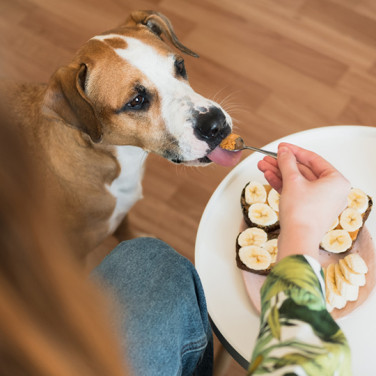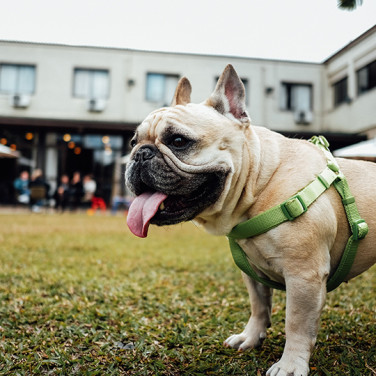SYMPTOMS
Dog Polyphagia (Increased Appetite) - Why Your Dog Is Always Hungry
페이지 정보
본문
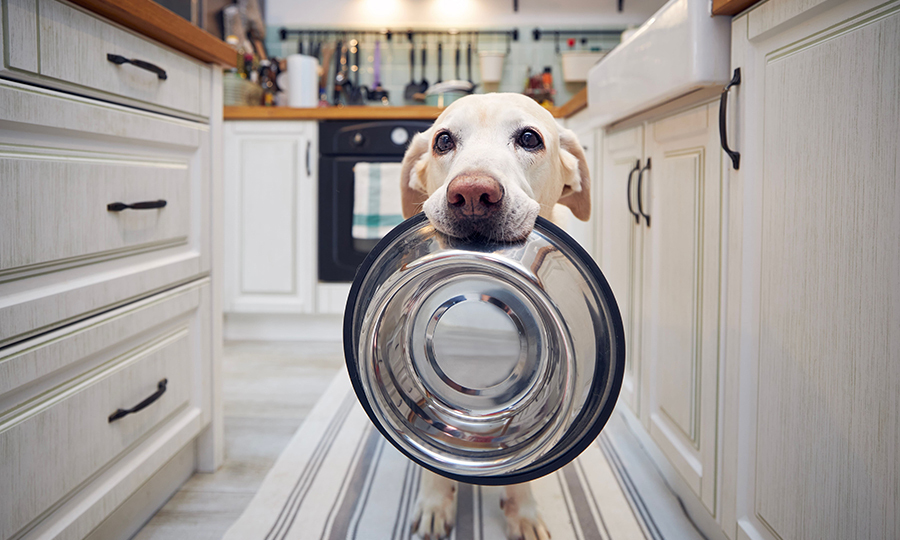
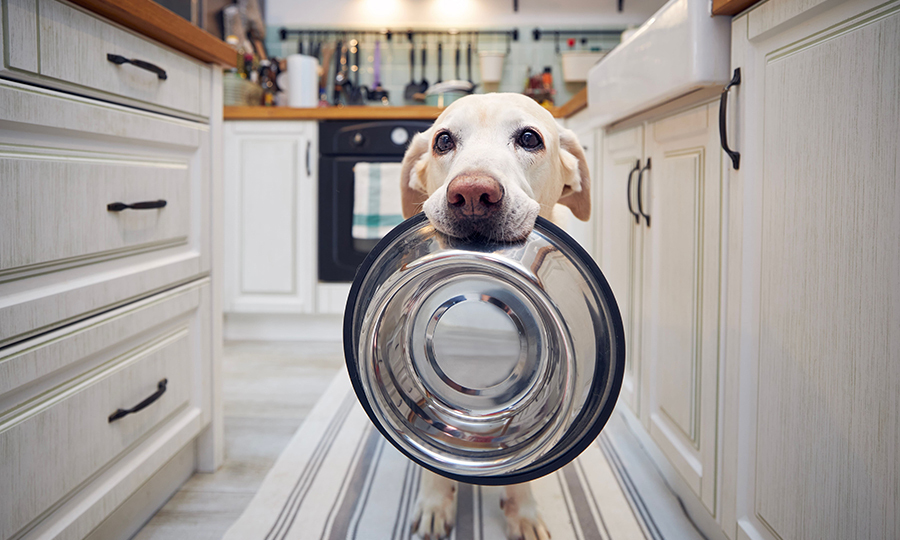
What is polyphagia in dogs?
As puppies grow, their energy and need for exercise increase, and naturally, they will need more food to support their playtime and growth. However, when a puppy seeks more food even after eating, you may suspect what is called polyphagia in dogs. Polyphagia refers to an increased appetite or overeating behavior in dogs.
There are many causes of polyphagia in dogs; some can be a sign of disease or infection, while others can have behavioral or psychological causes. When polyphagia, or an increased appetite in dogs, is observed, it is first necessary to distinguish the exact cause of your puppy's increased appetite. Diseases such as diabetes, parasitic infections, hormonal disorders, or simply poor nutrition can all cause polyphagia in dogs. In addition to an increased appetite in a dog, increased thirst and weight gain or loss may also be present. If your dog's sudden change in appetite or intense craving for food persists, it is a good idea to visit the vet to determine the exact cause.
Causes of sudden increased appetite in dogs
There are many causes of increased hunger or appetite in dogs that range from behavioral issues to disorders and infections.
Common causes of an increased appetite in dogs include:
-
Behavioral causes
This symptom could be due to learned behaviors either through irregular meal times, inconsistent amount of food provided and allowed frequent overeating.
-
Nutrient imbalance
Not getting enough nutrients or a nutrient imbalance can cause symptoms of increased appetite in dogs.
-
Gastrointestinal disorders
Gastrointestinal disorders that interfere with nutrient absorption can result in polyphagia in dogs. Diseases such as inflammatory bowel disease (IBD) or pancreatic exocrine insufficiency can lead to an increased appetite in dogs and weight loss due to poor absorption of nutrients in their food.
-
Cushing's disease (Hyperadrenocorticism)
Hyperadrenocorticism is one of the most common causes of polyphagia in dogs. Dogs with Cushing’s disease tend to have symptoms of increased thirst that accompany polyphagia.
-
When the pancreas does not produce enough insulin and the body does not utilize sugar properly, an increased appetite can occur.
-
Hyperthyroidism
Hyperthyroidism increases the body's metabolic rate and makes your dog feel hungry all the time.
-
Parasitic infections
Intestinal parasitic infections can reduce the absorption of food eaten, which can lead to an increased appetite in dogs.
-
Tumors
Tumors that secrete insulin can cause a persistent drop in blood sugar, increasing appetite.
-
Medication
Certain medications can cause polyphagia in dogs, including anti-inflammatory drugs such as Prednisolone and sedatives such as Phenobarbital.

Symptoms that accompany increased appetite in dogs
If your dog is displaying signs of polyphagia, it will continue to feel hungry and crave food even after feeding. This increase in appetite can also lead to increased thirst, which tends to lead to symptoms of increased urination and weight change.
Symptoms that may accompany polyphagia in dogs:
- Increased thirst
- Increased urination
- Weight change (increase or decrease)
- Potbelly
- Vomiting
- Diarrhea
- Panting
- Behavioral changes
Risk of increased appetite in dogs and when to see a vet
Although it may be easy to dismiss it as simply being really hungry, polyphagia in dogs can be a sign of an underlying disease that can lead to additional health problems. If your dog is displaying symptoms of polyphagia, it is important to consult with your veterinarian to determine the cause. Additionally, puppies with polyphagia may also be inclined to ingest foreign objects, so it is important to be vigilant in preventing them from doing so.
If your dog experiences any of the following symptoms, you should see your veterinarian asap:
- If there is a change in weight along with a persistent increase in appetite
- If your dog develops muscle atrophy or a bulging stomach
- If the amount of drinking water and the frequency of urination increase
- Gastrointestinal disorders such as vomiting and diarrhea
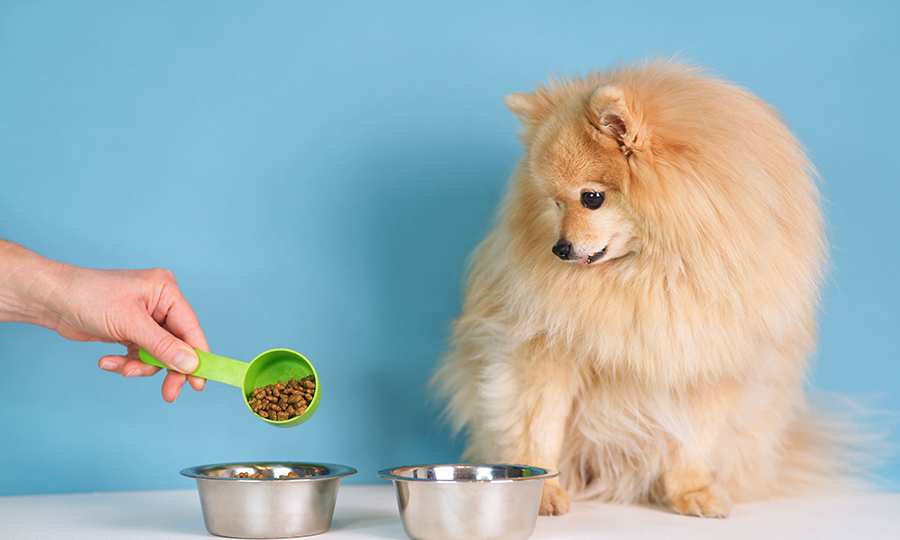
How to deal with polyphagia in dogs at home
If your dog is always hungry, it is necessary to determine whether it is due to a disease or a behavioral problem. In the case of a gastrointestinal disorder, there will be symptoms such as vomiting and diarrhea. If it is a hormonal disease, various symptoms such as symmetrical hair loss, polyuria, and abdominal distension may appear in combination.
If other symptoms are not present, correction of behavioral problems can be attempted. To do this, you should ensure that you are not overfeeding or underfeeding your dog. You can use a calorie calculator available online to determine the appropriate amount of food to give your pet. It also may be a good idea to divide the daily feeding amount into several smaller portions and feed your dog more frequently throughout the day. Additionally, switching the diet to a more well-balanced one can also help with this symptom.
How polyphagia (increased appetite) is diagnosed in dogs
If you are taking your dog to the veterinarian for a sudden increase in appetite, your veterinarian will first have to determine whether the symptoms are a result of a disease, infection, or disorder. A veterinarian will ask various questions and based on the answers, the appropriate tests will be conducted to determine the exact cause.
Questions your veterinarian may ask:
- Did the amount of drinking water and frequency of urination increase?
- Have you noticed any changes in your dog’s weight?
- Which company's product is the feed you are feeding your dog?
- Is your dog currently taking any medications?
Based on the response, tests are conducted to determine the cause. Various tests may be required depending on the dog's health condition or the contents of the response.
The following tests may be conducted:
-
CBC test
Blood will be drawn and tested for any changes in the number of white blood cells, which can help determine if a dog has diabetes, Cushing's disease, or infection.
-
Serum biochemistry profile
Blood will be drawn and tested to help determine if there are problems with multiple organs that can play a part in altering a dog’s appetite.
-
ACTH stimulation test
If hyperadrenocorticism is suspected as the cause of polyphagia, an ACTH stimulation test can be performed. A blood sample is required for this process.
-
Urinalysis
Polyphagia due to diabetes can be detected by testing your dog’s urine from the sugar content detected in their urine.
-
Imaging tests
Imaging tests such as abominable X-rays and ultrasounds can be conducted to detect any abnormalities in your pet’s digestive organs.
-
Endoscopy
Endoscopy allows direct evaluation of the digestive organs.
-
TLI test (Trypsin Like Immunoreactivity Test)
This test helps to determine if there are any problems with digestion or absorption of nutrients within your dog’s intestine.
-
Giardia test kit
Giardia, one of the most common dog parasites, can be diagnosed with this kit.
Treatment for polyphagia in dogs
The treatment for polyphagia will be tailored to the underlying cause. The prognosis for recovery is generally good when the owner follows the veterinarian's treatment plan.
-
Antiparasitic medication
If polyphagia is caused by an intestinal parasite infection, antiparasitic medications are prescribed.
-
Diet change
If there is a nutritional imbalance, a new diet may be instructed through consultation.
-
Digestive disease treatment
If your dog has polyphagia caused by malabsorption of nutrients due to digestive disease, treatment is necessary. In cases where the condition is caused by a medical condition, such as inflammatory bowel disease, may require symptomatic treatment and immunosuppressive drugs.
-
Endocrine disease treatment
If your dog is diagnosed with Cushing's disease, hyperthyroidism, or increased appetite resulting from diabetes, it is vital to have a treatment plan that is tailored to your dog’s specific condition. Treatment plans often involve a prolonged course of medication.
-
Anti-cancer therapy
If polyphagia is caused by a tumor, chemotherapy is needed to prevent the tumor from growing further.
How to prevent polyphagia in dogs
Eating regular meals can prevent an increased appetite caused by behavioral problems. Other causes typically will require a consultation with a veterinarian before symptoms of polyphagia worsen.
Find out more about your dog’s polyphagia symptoms on the Buddydoc app!
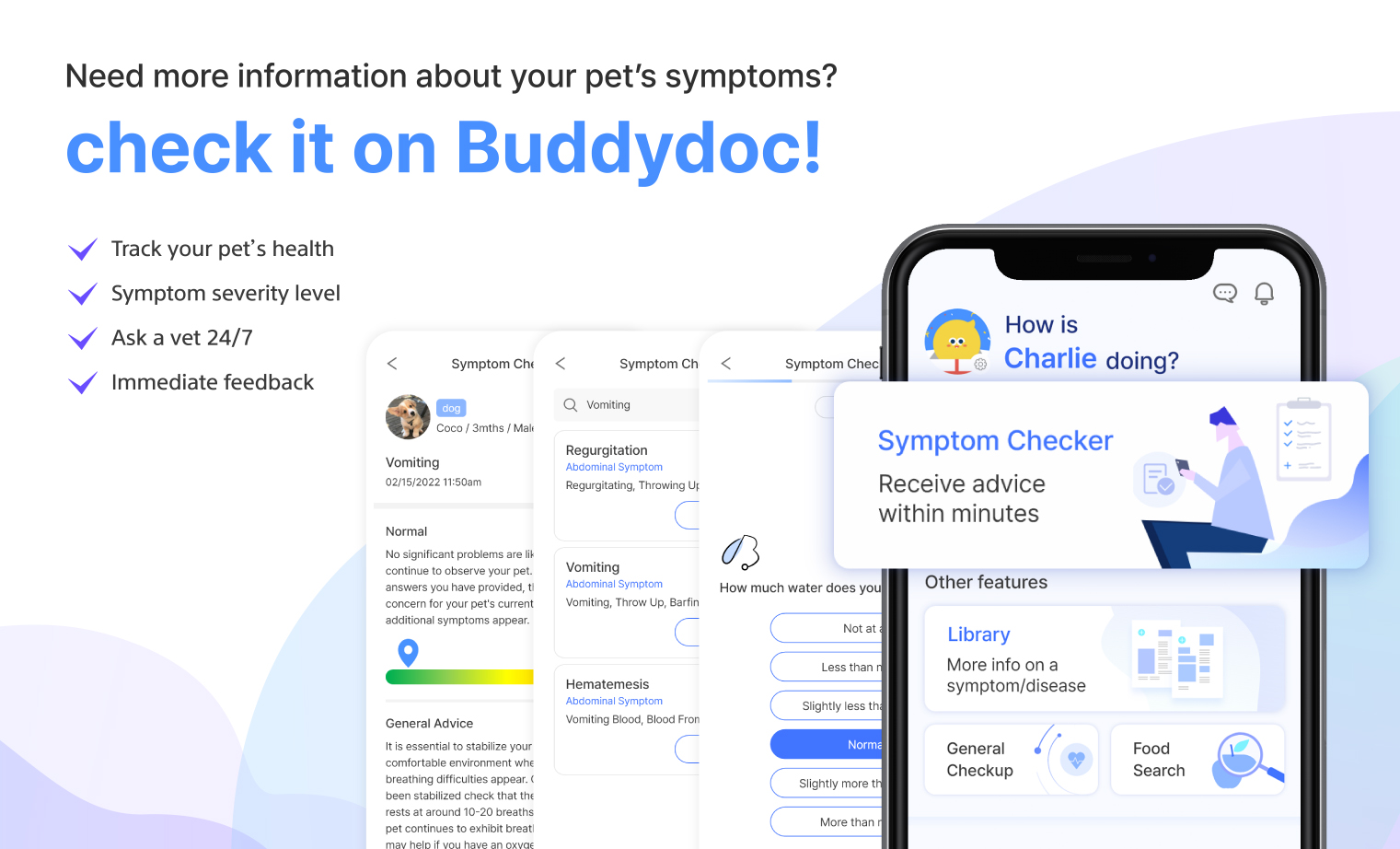
The Buddydoc library is filled with everything you’d want to know about each symptom and disease your pet may experience. If you would like to find out more about the causes, signs, treatments, preventions, and more for your dog’s disease. Try out the Buddydoc app and search your pet’s symptom or disease in the Buddydoc library.




